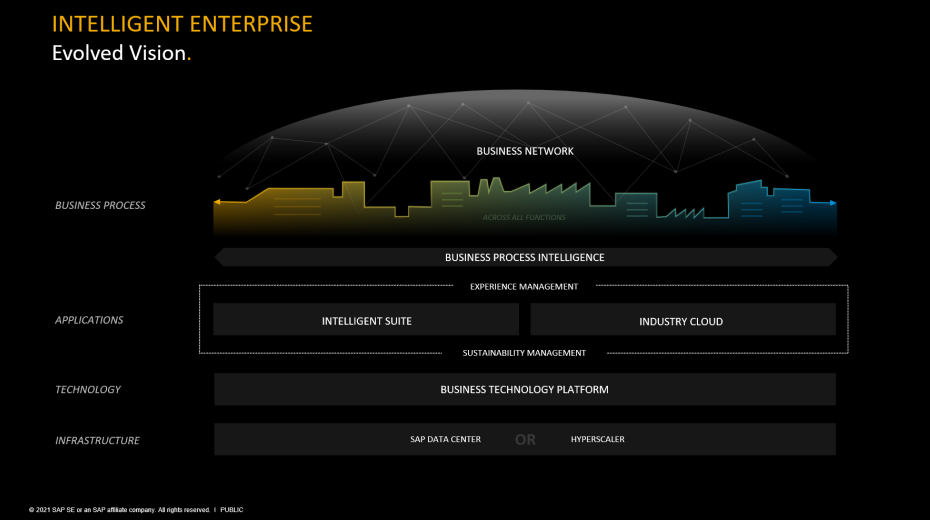Cloud and Platform
Find out about current cloud computing trends and profitable potentials for your business
Find out about current cloud computing trends and profitable potentials for your business


Cloud computing has largely become the norm in corporate IT. This is clearly demonstrated by the double-digit growth rates for Platform-as-a-Service (PaaS) and Infrastructure-as-a-Service (IaaS), for which an almost infinite variety of offers is available nowadays. The dominant cloud providers, AWS, Microsoft and Google, are showing a particularly high innovation rate by serving the market with new releases continuously. Given this rapid development, companies now face the task of keeping pace and getting the most out of the mass of possibilities for their own business. Many are currently tending towards hybrid cloud and multi cloud approaches. Which other trends are worth keeping an eye on? And what does it take to draw potential from them? At NTT DATA Business Solutions, we not only have answers to these questions, but can also help your company to use cloud technologies with proven methods, best practices, and ready-to-run solutions.

A multi-cloud approach is based on the combination of the same cloud type (e. g. public) from different providers, whose individual strengths can thus be combined in a targeted manner. In contrast, a hybrid cloud solution consists of different cloud types (e. g. public and private), which means that companies are able to expand the resources of their own data center or those of their IT service providers with the services of private and public clouds. This needs-based combination allows the advantages of both worlds to be combined: While the on-premises infrastructure can be used to store and process sensitive data, for example, infrastructure and platform services from cloud providers offer flexible scalability and reduced or more efficient overall costs of IT operations (currently cited as the main reason for introducing a hybrid cloud). Both approaches, multi and hybrid cloud, place increased demands on data security, which must be met with care to be able to extract the best from the individually designed cloud solutions.

Get in-depth expertise on the trending topic:

Cloud-native describes a design methodology in which applications are developed and executed using cloud-based technologies. In contrast to a monolithic application infrastructure, this approach is often combined with dividing the application into many small components – so-called microservices. Different development teams can work on these independently of one another using dynamic and agile application development techniques. Following this principle of loosely coupled services, each with a defined scope, you can optimize each service based on the core functionality and choose the framework, language or system that best meets the specific goals. The individual microservices are usually delivered in so-called containers, which supports the flexible combination of complex applications. In this way, certain components can be easily added, removed, or exchanged. For example, a software update or a new function can be delivered as soon as it is fully developed and not with the next release of a new software version. Overall, with a cloud-native architecture, you benefit from the full elasticity, scalability, speed, and cost advantages of the cloud.

Edge computing extends conventional cloud solutions with central servers by a concept in which data is processed decentralized at the edge of the network. This creates proximity to the producers and consumers of the information, which is particularly advantageous for applications in which huge amounts of data are to be transmitted and evaluated (almost) in real time. With the rapidly growing number of IoT devices and the correspondingly increasing volume of data, this is becoming more and more important. Examples of applications include intelligent production, supply or transport systems that require immediate action in the event of certain incidents. The main data center is involved here so that consolidated data from edge devices can be stored and also be further processed in other applications. Those decentralized edge devices need to be monitored and evaluated constantly, if necessary, by human experts. Using edge computing can result in a 10 to 30% reduction in costs and an average operational cost savings of 10 to 20%.

Cloud Security stands for a series of rules and measures for securing cloud services and their surrounding infrastructure, including all applications and data. The topic is of central importance for cloud providers and cloud users alike, as in the event of a security breach both could be held liable. Current developments make it clear how important cloud security is: The increasing distribution of workloads among different cloud providers opens gates for cybercriminals who are only too happy to exploit them if IT security is inadequate. The level of the cloud security solution required is primarily determined by which type of cloud is used – a public or hybrid cloud, for example, demand higher security measures than a purely private solution. The main focus is on protecting data from outside access and from a network failure. Besides, observance of compliance guidelines is also considered.

When talking about modern cloud solutions, there is no getting around SAP. The market leader among European software providers offers numerous advantages for your business with networked processes, multicloud openness, an extensive partner network and fast implementation.
The SAP Business Technology Platform (BTP) provides tools for data management and analytics and supports application development and the integration of applications within the SAP portfolio and non-SAP applications. It does not matter whether the application is a cloud or on-premises application. Furthermore, intelligent technologies such as AI, machine learning, Internet of Things, and RPA are provided to drive innovation. The SAP BTP is a fundamental part within the SAP Intelligent Enterprise Framework.
We are not just SAP specialists, we are experts in any infrastructure that contains or interacts with SAP solutions and systems. As a global full-service provider, we accompany companies on their entire cloud journey: from the initial consulting to ongoing management. Customers benefit from our closely interlinked managed cloud services and application management services, which have already been implemented successfully in countless projects all over the world.
We also support you when it comes to realizing the above trend topics in your business. As a service partner of SAP, AWS, Microsoft and many more, we have the necessary expertise to support you in optimizing your business.
Do you have an idea that you want to turn into reality? Or are you interested in exploring the cloud trends more in-depth? Do you wish to book one of our workshops to move your business forward with the help of cloud?
Just contact us – we will be glad to help you.

Christian Brink
Head of GMS Business Development, Global Managed Services